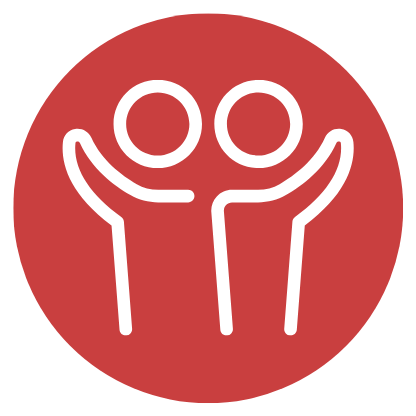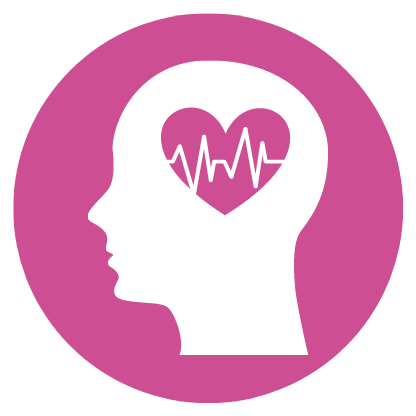How To Be Less Lonely At Work | HBR
Reference: Harvard Business Review. (2021, April 20). How to be Less Lonely at Work [Video]. YouTube.
We Make Your Education Count

Get the Credit You Deserve and Become the Most Attractive Job Candidate by Earning and Posting A+ Badges to Your Linkedin Profile.
Sign Up to Get Started at Accredicity
|
Discover how to make meaningful work friendships and be less lonely today with this inspiring video. In this video by Harvard Business Review, Christine Liu explores the issue of loneliness at work, and how to combat it. She talks to Jennifer Moss, a journalist, speaker, and author of The Burnout Epidemic, to learn more about the effects of loneliness on professional burnout, engagement and performance. Moss explains how having a close friend at work can make a person more likely to stay, get promoted, and feel greater satisfaction in life. Liu then goes on to learn how to make new friends at work, and shares her own journey in forging a friendship with her colleague Josh. She emphasizes the importance of expressing gratitude, being sincere, and taking the risk of reaching out. Learning Outline1. Understand that loneliness is a major predictor of professional burnout. Instructional ContentDo you feel lonely at work? Loneliness at work can be both isolating and debilitating. It can lead to decreased productivity, lack of motivation and even burnout. But it doesn't have to be this way. In this video, journalist, speaker and author Jennifer Moss discusses ways to beat loneliness at work. The first step is to identify and foster close friendships in the workplace. Moss recommends finding someone in the organization who has done something impressive and asking them for a coffee to chat about it. Start the conversation with gratitude and be sincere in your request. Next, focus on maintaining your close friendships. It's important to rely on them when feeling stressed or overwhelmed. Although it may be difficult to make time for them, it will pay off in the long run. Lastly, if you're feeling lonely, don't lose hope. Building relationships takes time, but it can be done. Reach out to people, be open and honest, and take small steps to build relationships. Loneliness at work can be a difficult obstacle to overcome, but it doesn't have to be. With the right strategies, you can find meaningful connections and build strong relationships that will help you feel less lonely and more connected. Communication
|

Making friends at work can be tricky! It's like you have to go out there and find the right person, like you're searching for a needle in a haystack. But it doesn't have to be so hard! Jennifer Moss, an expert, suggests starting with gratitude and a sincere compliment and then asking to chat. You never know, you could make a new best friend, and that could make a huge difference in how much you enjoy your job! Video Quotes"It's worse on our health than diabetes." - Jennifer Moss "Good work friendships aren't built in a day, but it only takes a moment to start one." - Christine Liu "Having a best friend at work actually makes it more likely for you to stay, about 50% more likely for you to stay in a job through times where it isn't as happy or well." - Jennifer Moss Related Quotes"It's important to recognize that it's okay to be alone sometimes and that it doesn't mean that you are lonely." -Karen Nimmo, Loneliness Expert "At work, it's so important to make a connection with someone, even if it's just a friendly one." -Karen Nimmo, Loneliness Expert "It's about choosing to be mindful when it comes to your relationships at work and paying attention to the people around you." -Karen Nimmo, Loneliness Expert Competencies1. Professional Relationships Learning Outcomes1. Describe the symptoms of loneliness in the workplace from the video (Knowledge) Sample Answers1. From this video, I learned that loneliness in the workplace can be detrimental to an individual's professional performance, health, and overall satisfaction. It can lead to job loss, lower pay, fewer promotions, and lack of confidence. 2. To make new friends at work, I should find someone I admire and start with gratitude. I should be sincere in my compliments and kindly ask for a few minutes of their time. 3. Finally, I learned that forming friendships in the workplace takes time but can be done with a small effort. It's important to maintain these relationships in order to avoid feeling lonely and burning out. Christine LiuChristine Liu is the founder of The People's Therapist, a mental health practice that focuses on helping professionals with mental health issues, and she is also the author of The Art of Human Connection. She is a certified executive and career coach and a certified professional counselor. She has a Master’s degree in Counseling Psychology and has been featured in publications such as Forbes, Entrepreneur Magazine, and Inc. Christine Liu is an expert on How to be Less Lonely at Work because she has dedicated her career to helping people build meaningful interpersonal relationships and develop strong social connections in their work and personal lives. She understands the unique challenges of loneliness in the workplace and is experienced in helping people combat it. Christine Liu Learning DesignCommunication is critical in both professional and personal relationships and is a key factor in maintaining mental well-being. Building strong communication skills, therefore, is an important part of fostering positive relationships and a healthy mental state. This course will help students build these competencies by providing them with the tools and skills necessary to effectively communicate in both professional and personal relationships. This course will use a variety of pedagogical frameworks and strategies to help students build these competencies. The course will include lectures, discussions, role-playing activities, and reflective exercises that will help students gain an understanding of the concepts and apply them to their own lives. The course will also include self-assessments and goal-setting activities to help students track their progress and set goals for further development. AssessmentQ: According to Jennifer Moss, how does having a close friend at work improve performance and productivity? A. It increases your likelihood of a promotion. Answer: A. It increases your likelihood of a promotion. QuestionsQuestions: 1. What strategies did Jennifer Moss suggest to help people make new friends at work? Keywords"Loneliness at Work," "Work Friendships," "Work Relationships," "Reduce Loneliness," "Make Work Friends," "Loneliness Impact Health," "Loneliness and Burnout," "Improve Work Relationships," "Avoid Work Burnout," "Building Work Friendships." Facts1. Loneliness can be as damaging to one's health as smoking 15 cigarettes a day. Trends1. Host virtual lunchtime events for colleagues to connect, such as game nights, cooking classes, or book clubs. SourceThis learning instructional guidance was formulated using the GPT-3 language model created by OpenAI. ShareMaking friends at work is necessary for success & satisfaction! #FriendshipCommence #WorkLifeBalance 🤝 It's hard to start, but it's worth it. Show gratitude and sincerity, and ask for a few minutes to chat. No more feeling lonely at work! 🤗 @Accredicity |








 23 Creds - Communication
23 Creds - Communication



